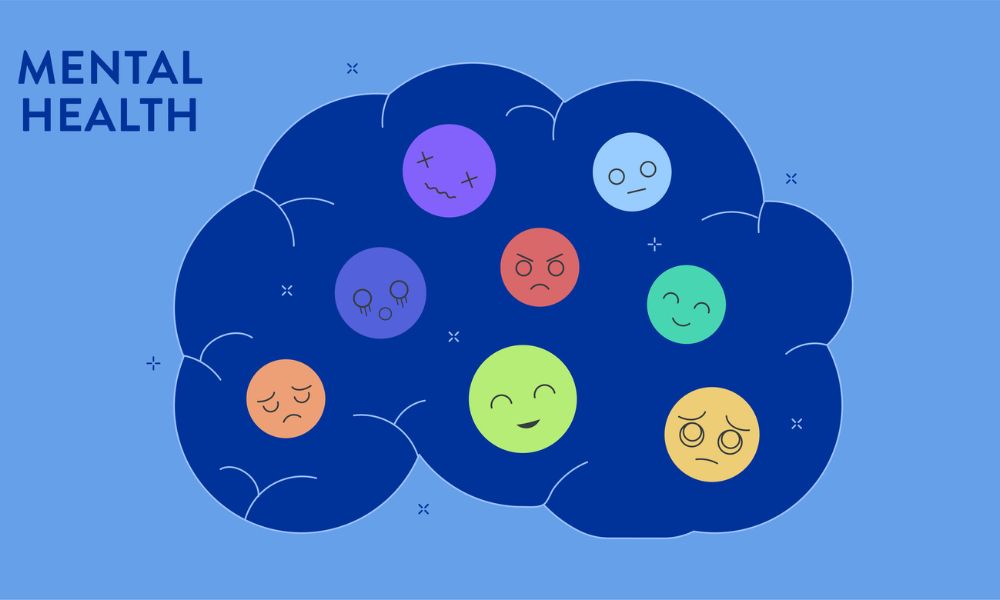Setting boundaries is essential for maintaining our emotional health and preventing anger build-up. When we clearly define what we will and will not accept from others, we create a space where our feelings are respected and valued. Many of us struggle with asserting our needs, often leading to frustration and resentment. By learning to communicate our boundaries effectively, we not only protect ourselves but also foster healthier relationships.

Taking the time to identify our personal boundaries empowers us to take control of our life. It allows us to express our feelings and stand firm against situations that might trigger anger. As we navigate our social circles, consistently practising boundary management helps us respond to challenges with confidence rather than frustration.
Establishing and maintaining boundaries is a lifelong journey that enhances our self-esteem and personal independence. By recognising the need for change and adapting our boundaries as required, we can significantly reduce anger build-up and improve our overall well-being.
Key Takeaways
- Setting boundaries is crucial for emotional health.
- Clear communication of our needs fosters healthier relationships.
- Regularly assessing our boundaries enhances personal growth.
The Importance of Setting Boundaries

Setting boundaries is essential for our emotional health. They help us define what is acceptable and unacceptable in our lives. Without clear boundaries, we may feel overwhelmed or taken advantage of.
Benefits of Setting Boundaries:
- Protects Our Well-being: Healthy boundaries help us safeguard our time and energy.
- Reduces Anger: When we establish limits, we are less likely to feel frustrated or angry when others overstep.
- Improves Relationships: Clear boundaries lead to better understanding and respect among friends, family, and colleagues.
Setting boundaries is not just about saying "no." It also involves communicating our needs effectively. We might need to express our limits in various areas, such as:
- Time Management: Keeping our schedules manageable.
- Emotional Space: Taking time for ourselves when needed.
- Physical Space: Ensuring that our personal space is respected.
It's important to note that setting boundaries can lead to reactions from others. Some may feel anger or disappointment. Yet, this is a normal response. We should remember that enforcing boundaries is a healthy practice.
In practice, we can start by identifying our limits. We can then communicate them clearly and calmly. By doing this, we set a foundation for healthier interactions and improve our overall well-being.
Identifying Personal Boundaries

Identifying personal boundaries helps us understand what we need to feel safe and respected. By recognising these limits, we foster both independence and personal responsibility in our relationships.
Physical and Emotional Boundaries
Physical boundaries involve our personal space and comfort with physical touch. We must consider how close we want others to be and when we feel overwhelmed. It is important to communicate these limits clearly.
Emotional boundaries protect our feelings. We should be aware of when we feel emotionally drained or upset by others’ actions. Recognising these signs allows us to assert our needs and maintain our emotional health.
Remember, setting these boundaries is not about pushing others away; it's about ensuring we feel safe and respected.
Intellectual and Material Boundaries
Intellectual boundaries often relate to our thoughts and beliefs. We need to protect our opinions and respect the views of others. If someone dismisses our ideas or beliefs, it can lead to conflict. We should feel comfortable expressing our thoughts without fear of judgement.
Material boundaries focus on our possessions. We must decide what we’re willing to share and what we wish to keep to ourselves. This clarity helps avoid misunderstandings and potential resentment.
By being clear about these limits, we maintain our personal space and encourage respect in our relationships.
Time and Energy Boundaries
Time boundaries are essential for managing our schedules. We often face pressures to say yes to everything. By knowing our limits, we can allocate time for ourselves, ensuring we have space to recharge.
Energy boundaries involve recognising our emotional and physical limits. We should be aware of when we are feeling drained. This understanding helps us prioritise self-care without feeling guilty about saying no to requests.
By establishing these boundaries, we protect our time and energy, empowering us to take responsibility for our well-being.
Communicating Your Boundaries

When we set boundaries, effective communication is essential to ensure others understand our limits. Clarity in our messages helps prevent misunderstandings and fosters respect. We will discuss assertiveness, appropriate language, and how to handle violations of our boundaries.
Assertiveness in Communication
Being assertive means expressing our needs clearly and confidently. We should state our boundaries firmly without being aggressive. For instance, instead of saying, "I won’t tolerate this anymore," we might say, "I need to communicate my limits regarding this behaviour."
Practising assertiveness can involve role-playing or rehearsing what we want to say. We should maintain steady eye contact and use confident body language to reinforce our message. Remember, asserting our needs is not selfish; it is a crucial part of maintaining healthy relationships.
Language and Tone in Boundary Discussions
The language we choose affects how our boundaries are received. Using “I” statements is beneficial as it focuses on our feelings. For example, “I feel uncomfortable when...” rather than “You make me uncomfortable.” This approach reduces defensiveness in others.
Our tone also matters. A calm and steady tone is more effective than an angry or frustrated one. We should avoid vague language; instead, we can be specific about our needs. For example, instead of saying, "I need space," we might communicate, "I’d like to be alone for the next few hours to recharge."
Handling Boundary Violations
When someone crosses our boundaries, it's important to address it promptly. Ignoring violations can lead to increased frustration and anger. We should calmly remind the person of our boundaries and explain how their action affected us.
For instance, we might say, "I mentioned that I need my evenings free for personal time, and I feel disappointed when that isn't respected."
We can discuss possible solutions and reinforce our limits. If violations continue, we may need to reconsider the relationship's nature. Clear communication is vital in addressing these issues effectively.
Boundary Management in Relationships

Setting clear boundaries is essential in both personal and professional relationships. By managing these boundaries well, we can communicate our needs and reduce feelings of frustration and anger.
Personal Relationships
In personal relationships, boundaries help us maintain our sense of self. It’s important to communicate openly about what is acceptable to us and what isn’t.
- Express your needs clearly: Using "I" statements can be effective. For example, saying "I need some time alone" works better than "You always want to be around me."
- Listen actively: We must also appreciate the needs of others. Listening can create a supportive environment for mutual respect.
- Set limits: Decide how much time and energy we can give to friends and family. It’s okay to say no when we need to recharge.
Healthy personal boundaries protect our emotional well-being and strengthen our connections.
Professional Relationships
In professional settings, boundaries are vital for a productive work environment. They help us define our roles and responsibilities.
- Clarify your role: We should communicate our job responsibilities clearly to avoid overstepping.
- Maintain work-life balance: Establish specific times for work and personal life. For instance, we can set boundaries on after-hours communication.
- Encourage respect: Respecting each other's time and space promotes teamwork. When colleagues honour boundaries, it enhances collaboration.
By setting and managing boundaries at work, we can reduce stress and improve our relationships with colleagues and supervisors.
The Role of Self-Esteem in Maintaining Boundaries
Self-esteem is crucial for setting and maintaining boundaries. When we have a healthy sense of self-worth, we are more likely to respect our own needs.
High self-esteem encourages us to take personal responsibility for our feelings and actions. We understand that it's okay to say "no" when needed. This clarity helps us establish what we will and will not accept from others.
Without confidence in ourselves, it can be challenging to enforce boundaries. We may fear disapproval or conflict, leading to feelings of resentment. Recognising our value helps us stand firm.
Here are some benefits of strong self-esteem in maintaining boundaries:
- Improved Communication: We articulate our needs directly and clearly.
- Reduced Anxiety: Confidence lowers our fear of others' reactions.
- Healthier Relationships: Clear boundaries foster mutual respect.
To strengthen our self-esteem, we can practice positive self-talk and set achievable goals. Acknowledging our strengths and celebrating achievements can also build our confidence.
In summary, maintaining boundaries starts with how we view ourselves. By valuing our needs, we create a better environment for our emotional health.
Coping Strategies for When Boundaries are Challenged
When our boundaries are challenged, it can lead to heightened emotions and stress. We can use specific strategies to effectively manage our emotional responses and seek the support we need.
Managing Emotional Responses
When we feel our boundaries are violated, it's natural to experience strong emotions like anger or frustration. Acknowledging these feelings is the first step to managing them.
We should take a moment to breathe deeply. This helps us regain our composure. Practising mindfulness can also be beneficial. Mindfulness allows us to observe our emotions without judgment.
Engaging in physical activity, like walking or stretching, can release built-up tension. It redirects our focus and promotes a sense of calm.
Additionally, using positive affirmations can reinforce our self-worth. Reminding ourselves that our feelings matter helps us stand firm in our boundaries.
Seeking Support
When facing challenges to our boundaries, seeking support from friends or family can be invaluable. Talking to someone we trust allows us to express our feelings freely.
It's important to connect with people who respect our boundaries. They can provide reassurance and encouragement during tough times. Sharing our experiences can help us gain new perspectives as well.
We might also consider joining a support group. These groups offer a safe space to discuss our challenges with others who understand. Sometimes, hearing how others manage similar situations can give us useful coping strategies.
By building a solid support network, we can maintain our emotional health and reinforce our boundaries effectively.
Achieving Personal Independence Through Boundaries
Setting boundaries is crucial for our personal independence. When we establish clear limits, we take charge of our lives and choices. This leads to increased confidence and self-esteem.
Benefits of Setting Boundaries:
- Empowerment: We feel more in control of our interactions.
- Personal Responsibility: We learn to take ownership of our needs and desires.
- Healthy Relationships: Boundaries help us build respectful connections with others.
To set effective boundaries, we can follow these steps:
- Identify Our Needs: Reflect on what is important to us.
- Communicate Clearly: Share our boundaries with others in a straightforward manner.
- Be Consistent: Uphold our boundaries even when challenged.
When we assert our needs, we invite respect from those around us. This also teaches others how to relate to us properly.
Boundaries foster a sense of freedom. We can decide what we will accept and what we won’t. This independence allows us to create fulfilling lives, unencumbered by negative influences.
By practising boundary-setting, we reinforce our personal responsibility. It’s a balanced approach that helps us maintain our individuality while enhancing our relationships. Through this process, we cultivate a healthier and more independent self.
Moving Forward: Continuous Boundary Assessment
As we grow and change, our boundaries may need adjustments. Regularly assessing our boundaries helps us respond to new situations and relationships effectively.
Key Steps for Continuous Boundary Assessment:
-
Self-Reflection: We should take time to reflect on our feelings and experiences. Are our boundaries still protecting us as intended?
-
Feedback from Others: Listening to trusted friends or family can provide insight. They might notice boundary issues we can't see ourselves.
-
Adaptation: Boundaries must be flexible. As our needs change, we might find we need stricter or looser boundaries in certain areas.
-
Communication: It’s essential to communicate any changes. Letting others know our updated boundaries helps prevent misunderstandings.
-
Monitoring Reactions: We should keep track of how we feel after setting or updating boundaries. Positive feelings indicate effective boundaries, while negative feelings may suggest adjustments are needed.
By regularly assessing our boundaries, we create a healthier emotional environment. This practice reduces the risk of anger build-up and promotes more fulfilling relationships. Together, we can ensure our boundaries serve their purpose effectively.
Frequently Asked Questions
Establishing personal boundaries can lead to various reactions, both positive and negative. Addressing concerns about pushback and hostility can help us navigate these situations more effectively.
How can one effectively manage pushback when establishing personal boundaries?
Dealing with pushback requires clear communication. We should express our needs calmly and assertively. Using "I" statements can help us share our feelings without blaming the other person.
What are potential consequences of setting boundaries with a narcissistic individual?
When we set boundaries with a narcissistic person, they may react with anger or manipulation. It's possible they will attempt to guilt us into changing our stance. Understanding their behaviour can prepare us for the challenges ahead.
In what ways might someone be penalised for implementing personal limits?
Setting personal limits can sometimes lead to isolation or conflict. Others might distance themselves or retaliate. We must be prepared for these possible reactions and remain firm in our decisions.
What steps should be taken when dealing with an individual who responds with hostility to boundaries?
When confronted with hostility, we should stay calm and not engage in a confrontation. Validating their feelings can help de-escalate the situation. We can also repeat our boundaries firmly while keeping a neutral tone.
How can one maintain a calm disposition when a friend exhibits anger over set boundaries?
To remain calm, we can practice deep breathing and focus on our intentions. It helps to remind ourselves why we set the boundary. We should also give our friend space to process their feelings without taking their anger personally.
What strategies are effective in preventing anger from escalating in oneself?
To prevent our own anger from growing, we can identify triggers and practice mindfulness. Taking a break or stepping away from a heated situation can help clear our minds. Engaging in physical activity or talking to someone can also release pent-up emotions.





















